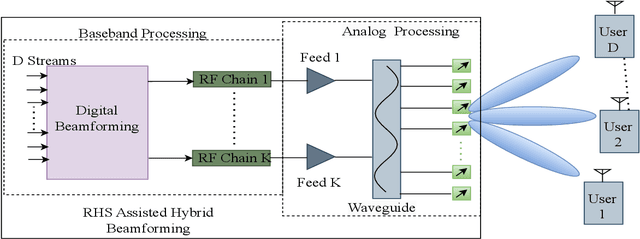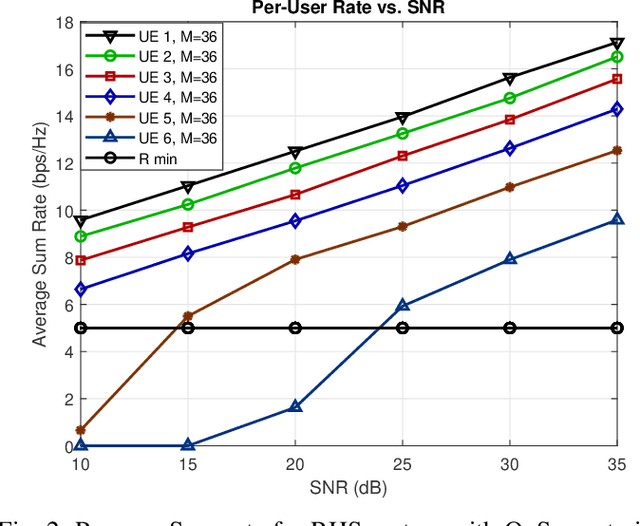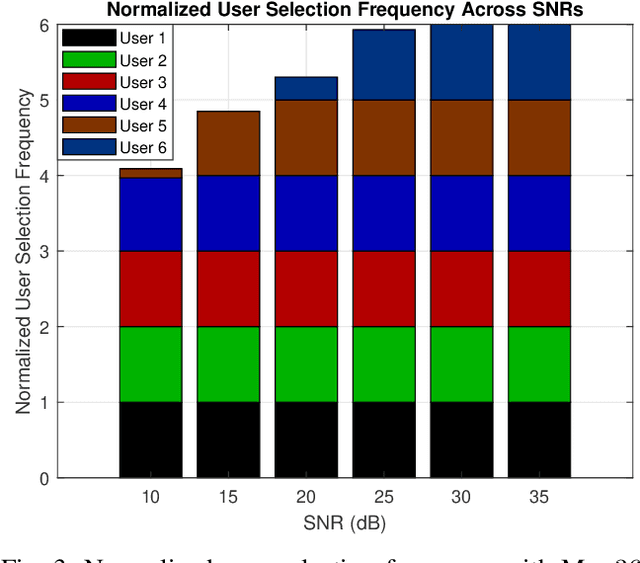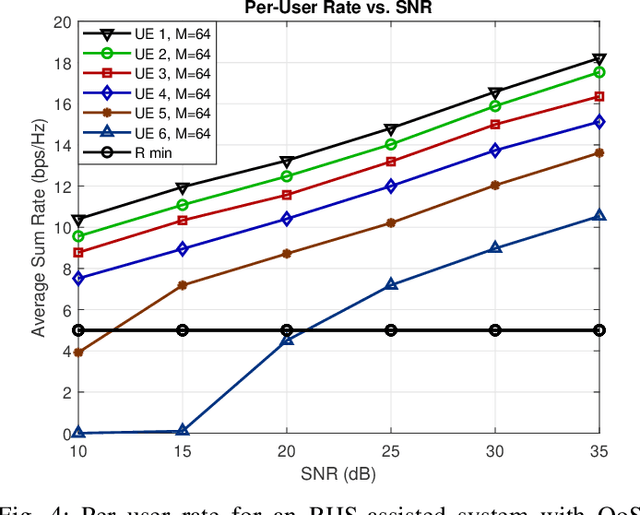Joint Holographic Beamforming and User Scheduling with Individual QoS Constraints
Paper and Code
Feb 24, 2025



Reconfigurable holographic surfaces (RHS) have emerged as a transformative material technology, enabling dynamic control of electromagnetic waves to generate versatile holographic beam patterns. This paper addresses the problem of joint hybrid holographic beamforming and user scheduling under per-user minimum quality-of-service (QoS) constraints, a critical challenge in resource-constrained networks. However, such a problem results in mixed-integer non-convex optimization, making it difficult to identify feasible solutions efficiently. To overcome this challenge, we propose a novel iterative optimization framework that jointly solves the problem to maximize the RHS-assisted network sum-rate, efficiently managing holographic beamforming patterns, dynamically scheduling users, and ensuring the minimum QoS requirements for each scheduled user. The proposed framework relies on zero-forcing digital beamforming, gradient-ascent-based holographic beamformer optimization, and a greedy user selection principle. Our extensive simulation results validate the effectiveness of the proposed scheme, demonstrating their superior performance compared to the benchmark algorithms in terms of sum-rate performance, while meeting the minimum per-user QoS constraints
 Add to Chrome
Add to Chrome Add to Firefox
Add to Firefox Add to Edge
Add to Edge